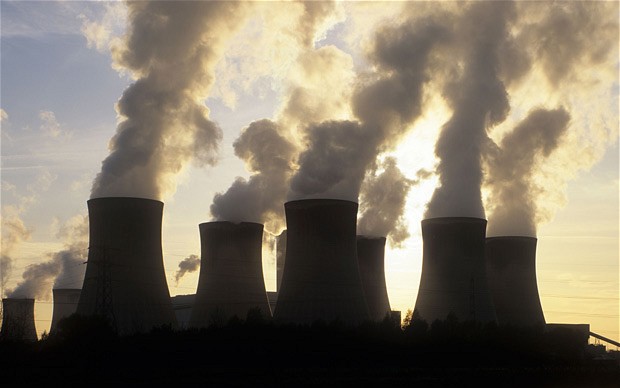Export credit agencies (ECAs) – and the governments that oversee them – could be in violation of their international legal obligations if they do not take action to reduce their financing of fossil fuel-related activities imminently.

That is the main conclusion of a new legal opinion published on Tuesday, May 4, 2021, two days before ministers gather at the Petersberg Climate Dialogue. The opinion, which was commissioned by Oil Change International, for the first time lays out the international law obligations of ECAs that are responsible for tens of billions of dollars per year in support for fossil fuels.
The South African ECA – the Export Credit Insurance Corporation (ECIC) – and the South African government are expected to be aware of this opinion, as the government has recently released an updated draft Nationally Determined Contribution (NDC) to the Paris Agreement.
The ECIC’s portfolio shows significant exposure to fossil fuels, and as a state-owned agency, this coupled with the updated NDC should prompt urgent action.
Alongside the release of the legal opinion, civil society organisations, including Oil Change International, ActionAid Denmark, Above Ground, BothENDS, CIEL, Friends of the Earth United States, Milieudefensie, Jubilee Australia, Les Amis de la Terre, Swedwatch, Justiça Ambiental/Friends of the Earth Mozambique and 350.org sent letters to relevant officials in Australia, the Netherlands, France, Sweden, Canada, Japan, the United States, South Africa and Denmark urging them to “take this opportunity to develop a policy that puts an immediate halt to support for fossil fuel projects and associated infrastructure, consistent with international law obligations.”
Of particular concern for the ECIC should be their $800 million loan guarantee to the Mozambique LNG terminal project in the Cabo Delgado Province. The LNG industry in northern Mozambique has reportedly caused suffering for local communities for years, even though gas will only be extracted after 2024 – if indeed this ever happens following last week’s announcement by Total, the project leaders, of “force majeur”.
This makes the project’s future uncertain, as Total leaves the country without paying local contractors or fulfilling their obligations to local communities. The project’s Environmental Impact Assessment admits that the construction phase alone will increase the greenhouse gas emissions for the whole of Mozambique by 10% by 2022.
Referring to the best available climate science, the authors of the opinion, Professor Jorge E Vinuales from the University of Cambridge and Barrister Kate Cook of Matrix Chambers, state that: “if the extremely dangerous consequences of climate change are to be averted or, more modestly, their likelihood reduced, there is no room for additional fossil fuel capacity and existing capacity or its emissions must be reduced urgently and proactively.”
The legal opinion considers the international law framework that applies to ECAs which act on behalf of States or are regulated by them or operate as separate entities. Drawing primarily on customary international law, as well as on human rights, climate change agreements and OECD instruments, it concludes: “given the substantial contribution of ECAs to enable the emissions of greenhouse gases associated with existing and new fossil fuel-related projects/activities, in principle, States comply with their duty of due diligence only if they do their utmost to reduce their contribution to the problem, rather than extending it or increasing it.”
According to the expert authors, State sponsors of ECAs must pursue the following five key actions to meet their international law obligations in relation to climate change:
- Not finance new fossil fuel-related projects/activities or increase the financing of existing ones;
- Decrease existing support for fossil fuel-related projects and activities within a clear, scientifically based time-frame;
- Proactively avoid locking in fossil fuel projects and activities which may use up a significant part of the remaining carbon budget;
- Adopt and proactively implement adequate procedures to assess the carbon footprint of potential projects; and
- Implement performance guidelines to monitor ECA activities in the context of the climate emergency.
“This legal opinion puts States and their export credit agencies on notice. They need to stop financing fossil fuel projects or face potential litigation risks. The opinion launched today puts serious legal muscle behind what was already a compelling moral and financial imperative: public money should not be used to prop up dirty projects and aggravate the dire climate crisis that is already affecting millions across the globe,” said Laurie van der Burg, Senior Campaigner with Oil Change International.
“If export credit agencies don’t stop financing oil, gas and coal, then these institutions — and the governments responsible for them — could find themselves facing legal action. Civil society groups looking to safeguard the climate are increasingly turning to legal tools to protect our common future, and this opinion makes it clear that ECAs might become the next target of climate litigation,” said Karen Hamilton, Programme Officer with Above Ground.
The legal opinion also mentions the need to expand the OECD restrictions on export finance for coal-fired power to cover all fossil fuels and associated infrastructure, in line with the Paris Agreement goals. OECD members previously agreed to restrict export finance for coal-fired power plants in 2015, but progress on further restricting ECA finance for fossil fuels stalled during the Trump Administration.
At the Biden Climate Summit, the US announced that it wants to “spearhead efforts to modify disciplines on official export financing provided by OECD export credit agencies (ECAs), to reorient financing away from carbon-intensive activities”.
According to data from Oil Change International, ECAs from G20 countries provided $40.1 billion annually to support fossil fuel activities compared to only $2.9 billion for clean energy between 2016 and 2018. Their support for fossil fuels has not dropped since the adoption of the Paris Agreement.
